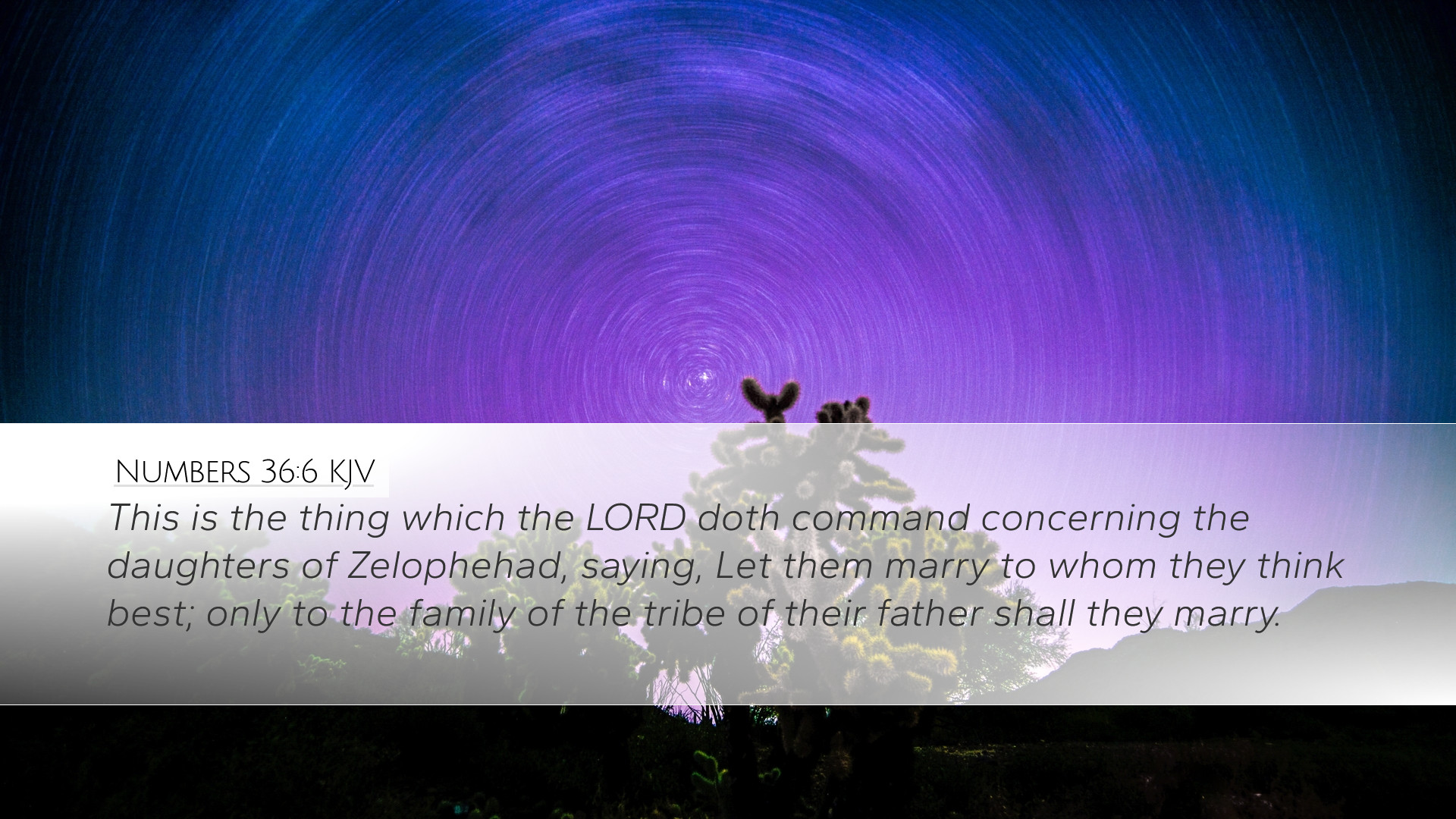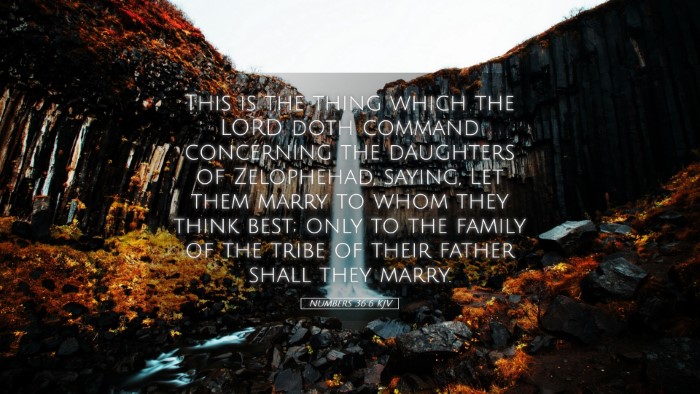Commentary on Numbers 36:6
The verse in Numbers 36:6 reads as follows:
"This is the thing which the LORD doth command concerning the daughters of Zelophehad, saying, Let them marry to whom they think best; only to the family of the tribe of their father shall they marry." (Numbers 36:6, KJV)
Introduction
This verse addresses a significant issue concerning inheritance laws and family ties within the tribes of Israel. The context stems from the narrative surrounding Zelophehad’s daughters, who raised questions regarding their right to inheritance in a patriarchal society. The insights from various public domain commentaries enrich our understanding of the theological and practical implications of this command.
The Cultural Context
The cultural implications of Numbers 36:6 highlight the complexity of inheritance rights in ancient Israel. In a society where lineage and tribal affiliation were paramount, this divine command enabled the daughters to retain their familial identity, even as they merged their lives with husbands from outside their immediate kin.
- Matthew Henry: Emphasizes the importance of maintaining tribal integrity, teaching that the daughters had freedom in choosing their spouses but were still called to honor their father's tribe—this prioritizes family ties while allowing individual choice.
- Albert Barnes: Notes this allowance reflects God's justice and concern for familial structures, showing that the Lord’s commandments are often rooted in societal ethics and divinely inspired order.
- Adam Clarke: Highlights the progressive nature of this command, indicating a shift in social norms concerning women's rights. His commentary reflects on how God's law facilitates a balance between personal choice and family duty.
Theological Implications
The directive for the daughters of Zelophehad to marry within their tribe illustrates several key theological principles:
- God's Provision: This reflects God's care for ensuring that property rights and tribal allocations were honored and preserved (Henry).
- Divine Order: The command underscores the importance of God’s order in the life of His people, establishing a framework that both respects individual autonomy and promotes communal stability (Barnes).
- Inclusivity and Empowerment: The aspect of empowering women in decisions regarding their marriages signifies a progressive divine action within a traditionally patriarchal culture (Clarke).
Application for Modern Readers
For pastors, students, theologians, and Bible scholars today, Numbers 36:6 is a rich verse that encourages reflection upon contemporary issues of rights, gender roles, and community integrity.
- Community Leadership: This verse serves as a model for leadership within Christian communities, showing that divine guidance respects cultural contexts while initiating change toward fairness and equity.
- Gender Relations: Reflecting upon this text allows church leaders to address gender dynamics within their communities, advocating for rights and roles that align with biblical principles while fostering mutual respect.
- Moral Responsibility: Readers are encouraged to take seriously their responsibilities to their families and communities, recognizing that personal decisions have wider implications.
Concluding Thoughts
In conclusion, Numbers 36:6 serves not only as a historical account of legal stipulations within Israel but also as a profound theological statement about God’s concern for family, gender equality, and community cohesion.
Engaging with this scripture challenges believers to consider how such ancient directives inform modern faith practices and community life, enhancing both personal faith and corporate witness.


